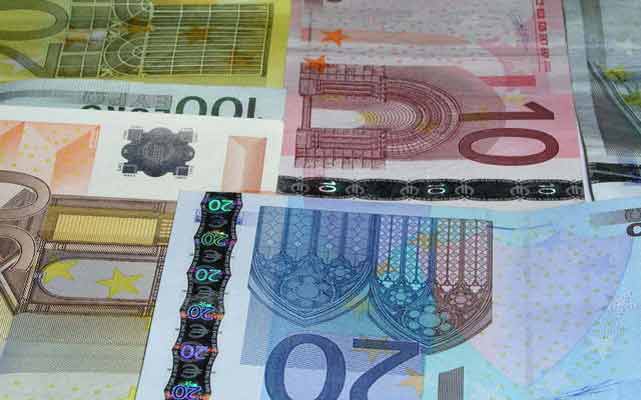British Pound-to-Euro Forecast: GBP Inflation Gains Fade
- Written by
Frank Davies

The Pound to Euro exchange rate (GBP/EUR) initially spiked to 1.1625 from 1.1580 following the latest UK inflation data, but struggled to hold the gains.
As the session progressed, Sterling slipped back across the board. At the time of writing, GBP/USD is trading at 1.3460 (-0.2%) and GBP/EUR at 1.1544 (-0.3%). Losses were also registered against the Swiss Franc, Yen and Scandinavian currencies, while the Pound held firmer versus the Australian, New Zealand and Israeli currencies.
Key short-term resistance remains around 1.1620-30.
ING commented, “Be careful chasing the CPI rally.”
The higher-than-expected rate will reinforce the Bank of England's (BoE) reservations over cutting interest rates further in the short term.
The Pound will be underpinned by high yields, especially if there is further strong demand for carry trades.
The bond market, however, will be watched closely as a further sell-off in bonds would risk a renewed loss of confidence, especially as debt-servicing costs would increase further and risk a sudden Pound sell-off.
The 10-year yield opened close to 4.75% and any move above 4.80% would trigger further unease.
UK consumer prices increased 0.1% for July compared with expectations of a small decline. The headline annual inflation rate increased to 3.8% from 3.6%, above consensus forecasts of 3.7% and the highest rate since January 2024.
The core rate edged higher to 3.8% compared with expectations of no change at 3.7% and equalling a 14-month high.
The goods inflation rate increased to 2.7% from 2.4% while the services-sector rate increased to 5.0% from 4.7%.
The CPI (H) inflation rate, preferred by the ONS, increased to 4.2% from 4.1% while the RPI index jumped to 4.8% from 4.4%.
The RPI rate is often used by wage negotiators and is also used to set regulated prices such as train fares.
The largest upward contribution came from transport, notably airfares, which was offset by a downturn in household services as housing costs declined slightly on the month.
Inflation for food and non-alcoholic beverages increased to 4.9% from 4.5%, the highest rate since February 2024.
The data will trigger fresh unease over inflation trends within the Bank of England. In particular, there will be increased concerns over inflation expectations and the risk of upward pressure on wages.
In this context, there will be even greater doubts whether the BoE can cut rates again this year, but further job losses would complicate this issue and increase stagflation fears.
Ruth Gregory at Capital Economics commented, “The risk is that inflation expectations and wage growth rise further and the next move down in rates does not happen until next year.”
HSBC senior economist Chris Hare noted the dilemma: "We think the disinflationary momentum, particularly in the wage data, will be just about enough to tip the MPC into cutting rates in November."
Nevertheless, he noted a figure above 4% could shift the narrative; "If we see indicators of inflation expectations being even more uncomfortably elevated than they are, it would increase the risks of the majority of the MPC opting to pause for the time being."
STORY LINK British Pound-to-Euro Forecast: GBP Inflation Gains Fade

The Pound to Euro exchange rate (GBP/EUR) initially spiked to 1.1625 from 1.1580 following the latest UK inflation data, but struggled to hold the gains.
As the session progressed, Sterling slipped back across the board. At the time of writing, GBP/USD is trading at 1.3460 (-0.2%) and GBP/EUR at 1.1544 (-0.3%). Losses were also registered against the Swiss Franc, Yen and Scandinavian currencies, while the Pound held firmer versus the Australian, New Zealand and Israeli currencies.
Key short-term resistance remains around 1.1620-30.
ING commented, “Be careful chasing the CPI rally.”
The higher-than-expected rate will reinforce the Bank of England's (BoE) reservations over cutting interest rates further in the short term.
The Pound will be underpinned by high yields, especially if there is further strong demand for carry trades.
The bond market, however, will be watched closely as a further sell-off in bonds would risk a renewed loss of confidence, especially as debt-servicing costs would increase further and risk a sudden Pound sell-off.
Save on Your GBP/EUR Transfer
Get better rates and lower fees on your next international money transfer. Compare TorFX with top UK banks in seconds and see how much you could save.
UK consumer prices increased 0.1% for July compared with expectations of a small decline. The headline annual inflation rate increased to 3.8% from 3.6%, above consensus forecasts of 3.7% and the highest rate since January 2024.
The core rate edged higher to 3.8% compared with expectations of no change at 3.7% and equalling a 14-month high.
The goods inflation rate increased to 2.7% from 2.4% while the services-sector rate increased to 5.0% from 4.7%.
The CPI (H) inflation rate, preferred by the ONS, increased to 4.2% from 4.1% while the RPI index jumped to 4.8% from 4.4%.
The RPI rate is often used by wage negotiators and is also used to set regulated prices such as train fares.
The largest upward contribution came from transport, notably airfares, which was offset by a downturn in household services as housing costs declined slightly on the month.
Inflation for food and non-alcoholic beverages increased to 4.9% from 4.5%, the highest rate since February 2024.
The data will trigger fresh unease over inflation trends within the Bank of England. In particular, there will be increased concerns over inflation expectations and the risk of upward pressure on wages.
In this context, there will be even greater doubts whether the BoE can cut rates again this year, but further job losses would complicate this issue and increase stagflation fears.
Ruth Gregory at Capital Economics commented, “The risk is that inflation expectations and wage growth rise further and the next move down in rates does not happen until next year.”
HSBC senior economist Chris Hare noted the dilemma: "We think the disinflationary momentum, particularly in the wage data, will be just about enough to tip the MPC into cutting rates in November."
Nevertheless, he noted a figure above 4% could shift the narrative; "If we see indicators of inflation expectations being even more uncomfortably elevated than they are, it would increase the risks of the majority of the MPC opting to pause for the time being."
International Money Transfer? Ask our resident FX expert a money transfer question or try John's new, free, no-obligation personal service! ,where he helps every step of the way, ensuring you get the best exchange rates on your currency requirements.
TAGS: Pound Euro Forecasts
Comments are currrently disabled
Related Stories:
- British Pound to Euro Forecast: Growth Slowdown, Tax Fears Weigh on GBP Outlook - October 17, 2025
- Pound to Euro Resilient Despite Modest Growth Data - October 16, 2025
- Pound-to-Euro Forecast: Weak UK Economy Strengthens Case for BoE Rate Cut - October 16, 2025
- Pound to Euro Dips on UK Budget Fears as EUR Finds Support - October 15, 2025
- British Pound to Euro Forecast: Why This Bank Sets Target of 1.1360 - October 15, 2025
- Pound Sterling Falls vs Euro Falls on Weak UK Jobs - October 14, 2025
- British Pound to Euro Forecast: Political Deadlock in France Adds to GBP Weakness Risks - October 14, 2025
- Pound-to-Euro Forecast: GBP/EUR Rises as Markets Doubt Lecornu’s Return - October 13, 2025
- Pound to Euro Week Ahead Forecast: Split Between 1.11 and 1.2050 Outlook - October 13, 2025
Latest News:
- Euro to Dollar Forecast: USD Retreats on Trade Fears, EUR Finds Support - October 17, 2025
- Pound to Dollar Forecast: GBP Advances as Fed Dovish Shift Hits USD - October 17, 2025
- British Pound to Euro Forecast: Growth Slowdown, Tax Fears Weigh on GBP Outlook - October 17, 2025
- Pound to Euro Resilient Despite Modest Growth Data - October 16, 2025
- GBP/USD Price Forecast: Pound Sterling Flat despite Weak UK Growth - October 16, 2025
- Pound Sterling to Dollar Forecast: GBP Rebounds as Fed Dovish Shift Hurts USD - October 16, 2025
- Pound-to-Euro Forecast: Weak UK Economy Strengthens Case for BoE Rate Cut - October 16, 2025
- Euro to Dollar Forecast: French Calm and Fed Dovishness Lift EUR Outlook - October 15, 2025
- Pound to Euro Dips on UK Budget Fears as EUR Finds Support - October 15, 2025
- GBP/USD Forecast: Pound Sterling Rises as Dovish Fed Speech Weighs on Dollar - October 15, 2025









